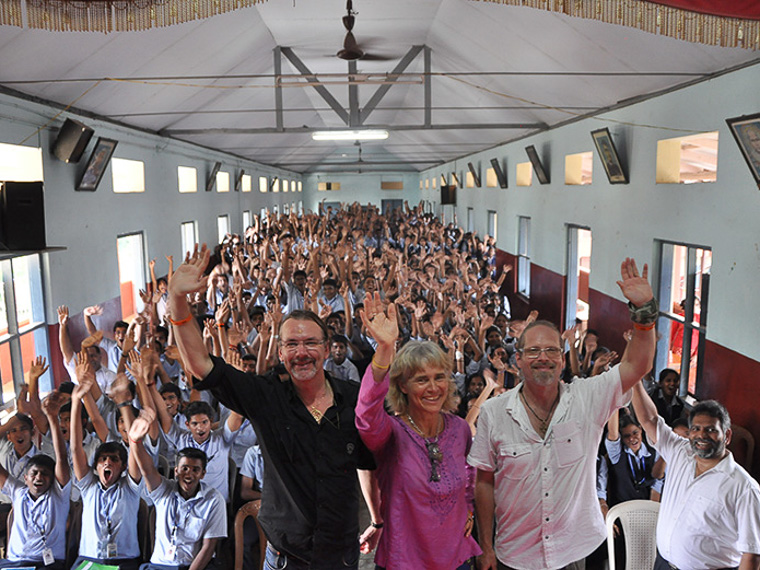Exceptionell Förändring
"Med decennier av erfarenhet kombinerar Ulf Sandström sin breda kunskap inom mental träning och trauma terapi med en unik förmåga att leda, stötta och skapa positiv förändring hos både individer och team"

"Med decennier av erfarenhet kombinerar Ulf Sandström sin breda kunskap inom mental träning och trauma terapi med en unik förmåga att leda, stötta och skapa positiv förändring hos både individer och team"

Jag har ägnat en stor del av mitt liv åt att främja mänskligt välbefinnande – att hjälpa individer, team och organisationer att nå sin fulla potential. I en familj där föräldrarna var svenska diplomater, fick jag växa upp i många olika kulturer vilket har inspirerat mig att förstå och hjälpa människor. Idag har jag förmånen att få arbeta över hela världen med mental träning, trauma återhämtning och humanitära insatser.
Jag är stolt över att tillsammans med Gunilla Hamne fått ta emot ACEP:s Humanitarian Award för vårt arbete i Peaceful Heart Network. Jag är författare till ett flertal publikationer som delar mina erfarenheter.

Ulf är en av de mest visionära och skarpa hjärnor jag har haft nöjet att lära känna. Hans tillvägagångssätt är tydligt, kreativt och skapar ständigt nya insikter.
Du kan vara en individ eller en familjekonstellation, representera ett team eller ett företag, jag kommer att använda all min erfarenhet — från mänskliga extremfall och interaktioner till kliniska studier och fältarbete — för att med beprövade verktyg hitta vägar till djupgående förändring.
Jag har mött människor som gått månaderi terapi och medicinering för att hantera symtom på PTSD, trauma, fobier, depression och andra utmaningar, och det kan vara nödvändigt.
I min erfarenhet kan det vara möjligt att lösa sådana utmaningar med metoder som tar hänsyn till neurologi, betingning och tankemönster— ibland i en eller ett par sessioner.

Jag kände mig så trygg med Ulf, hans sätt att ta sig tid och ha tålamod för varje individ var helt fantastiskt. Ulf hjälpte mig verkligen komma vidare.
Jag har en passion för att utveckla mänsklig potential och kombinerar årtionden av erfarenhet med innovativa tekniker för att utforma processer som är skräddarsydda för att göra märkbar skillnad för dig.
Vårt samarbete kommer att utformas för att ta itu med dina specifika behov och främja meningsfulla framsteg. Här är några sätt på vilka jag kanske kan hjälpa dig.
Verklig förändring. Bestående inverkan. Mätbara resultat.




Som författare och berättare söker jag fängslande narrativ, där jag kan väva samman sinne med själ. Mina böcker, ljudböcker och poddar, utforskar teman som trauma lindring, själv reflektion och hypnos och finns tillgängliga på flera språk. Varje verk, från den praktiska guiden i ”Trauma Tapping Technique” till den hypnotiskt skrivna ”Unpack Your Existence”, är tänkt att bjuda in till en transformativ resa grundad i gedigen forskning, levda erfarenheter och en passion för positiv förändring.